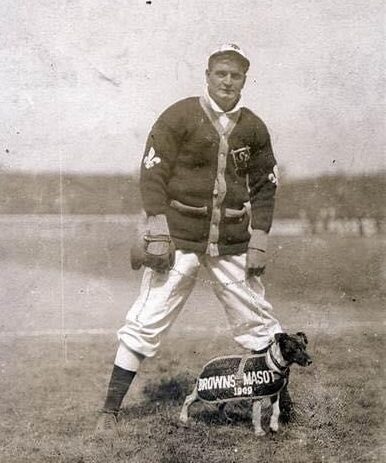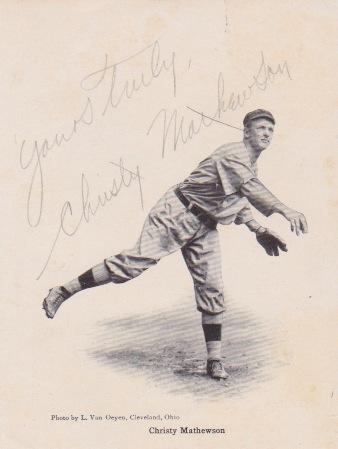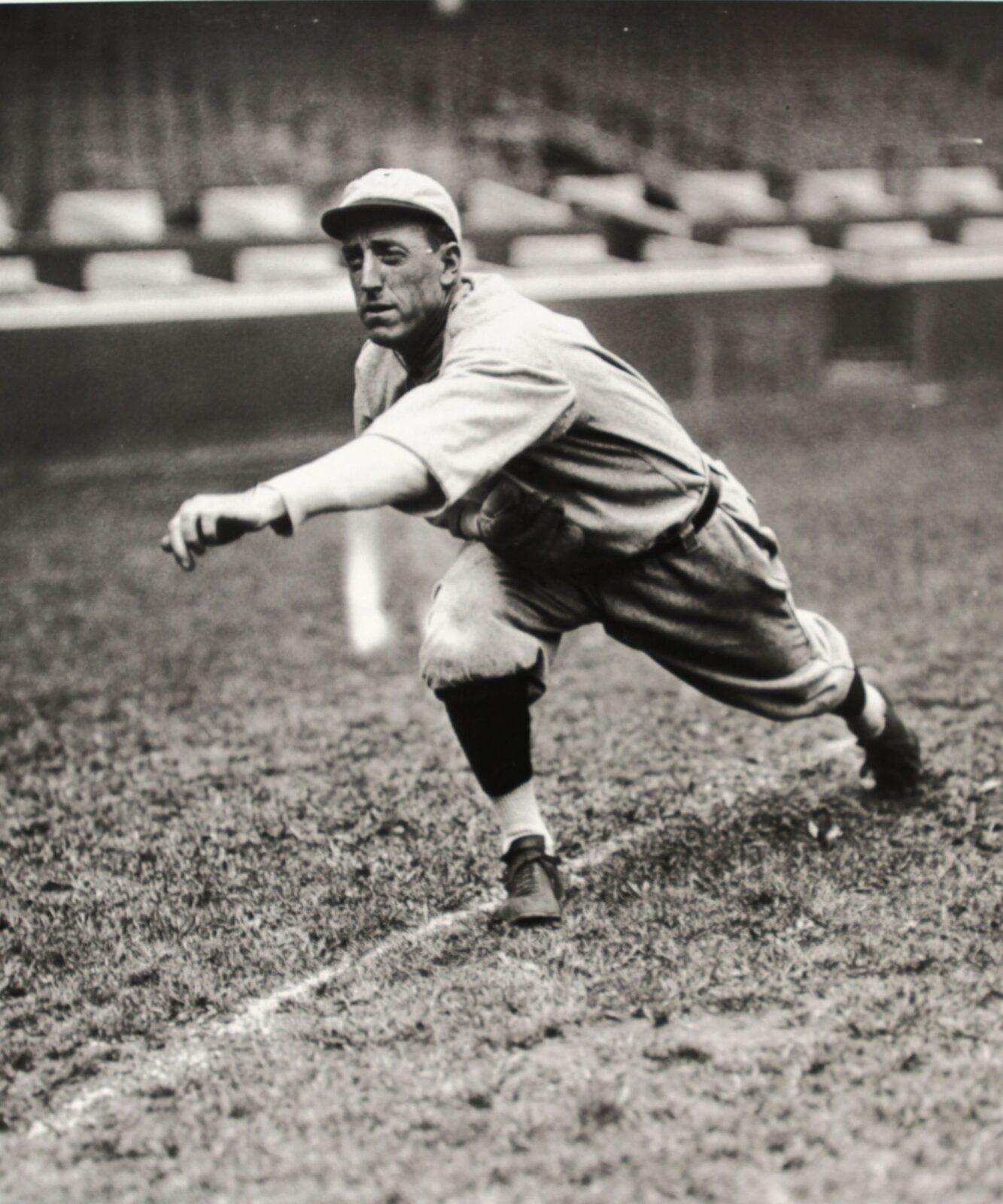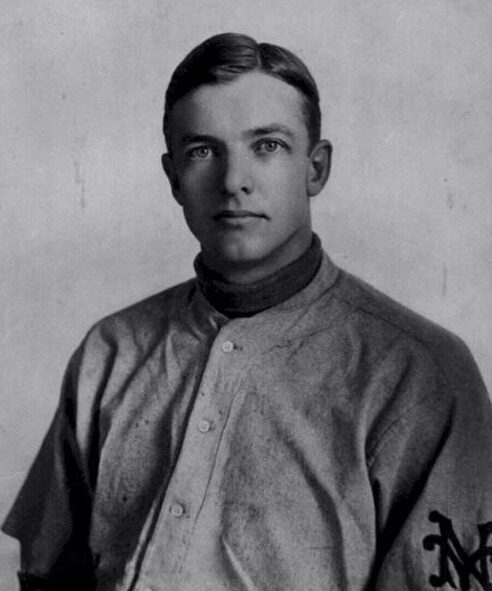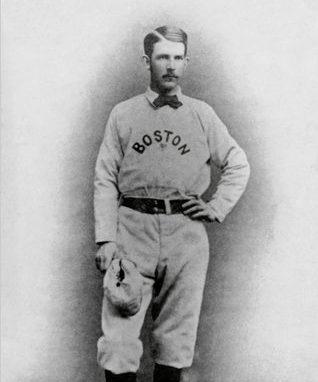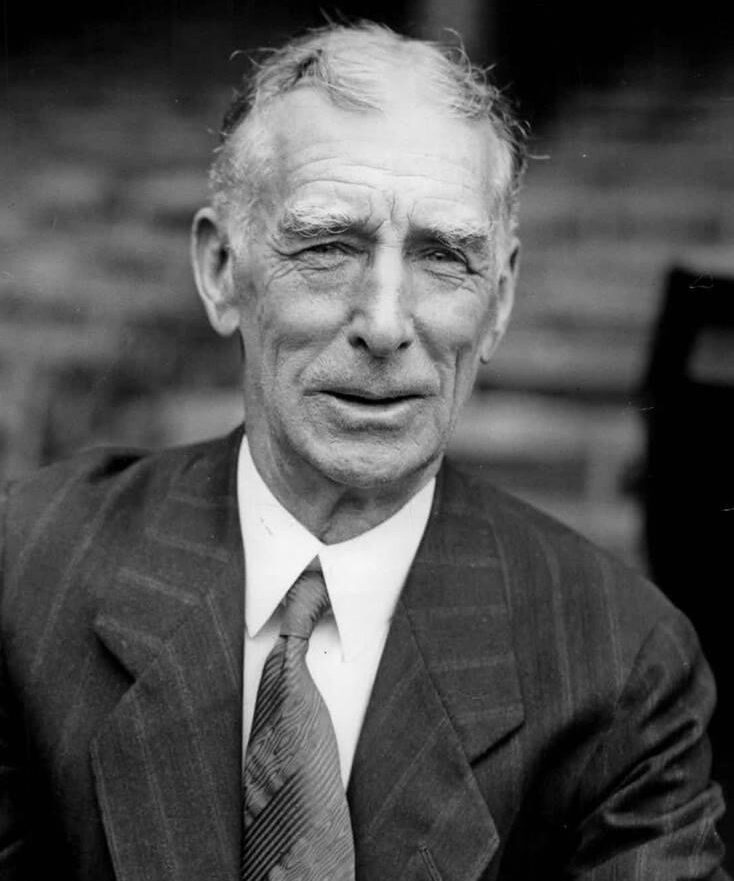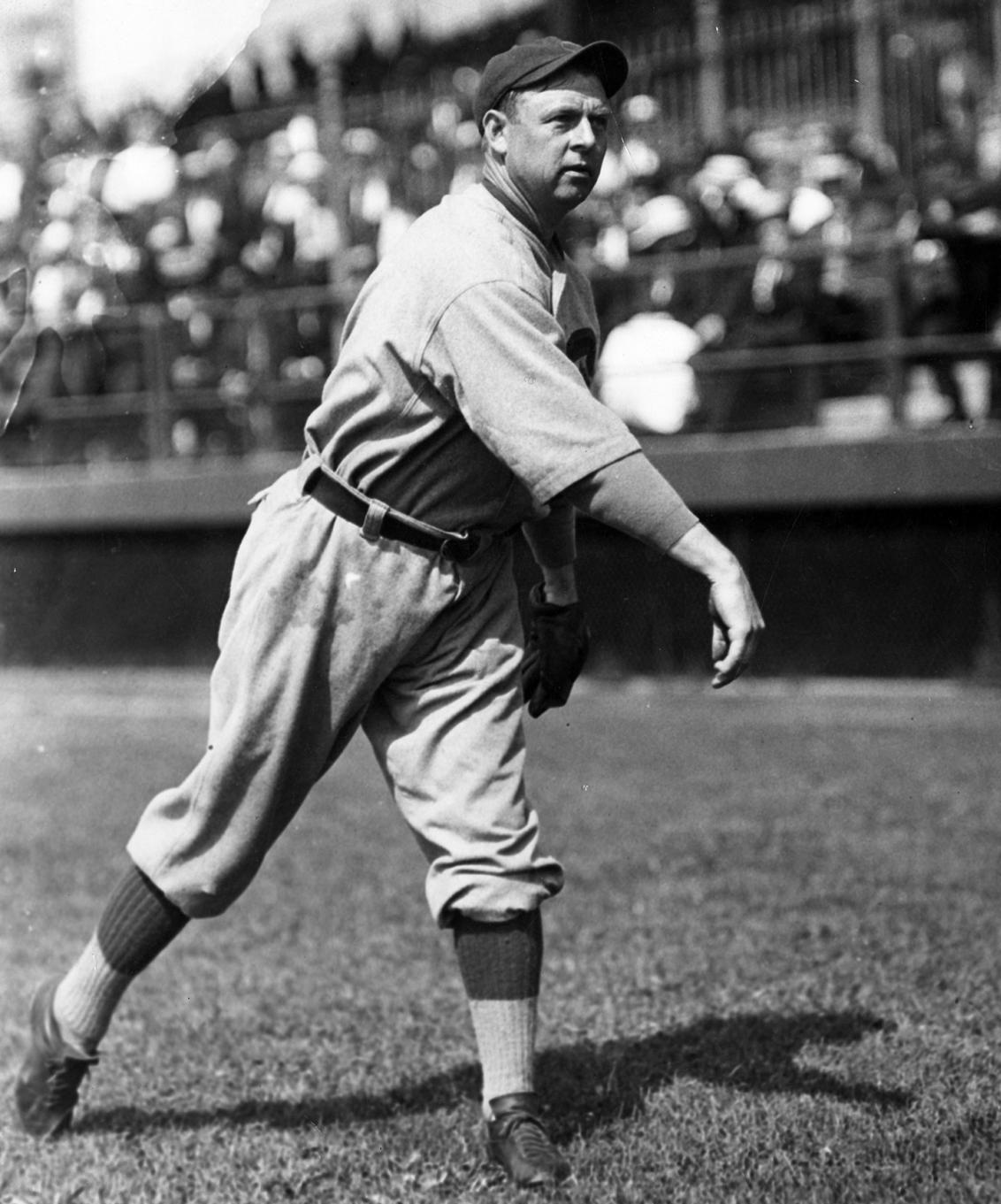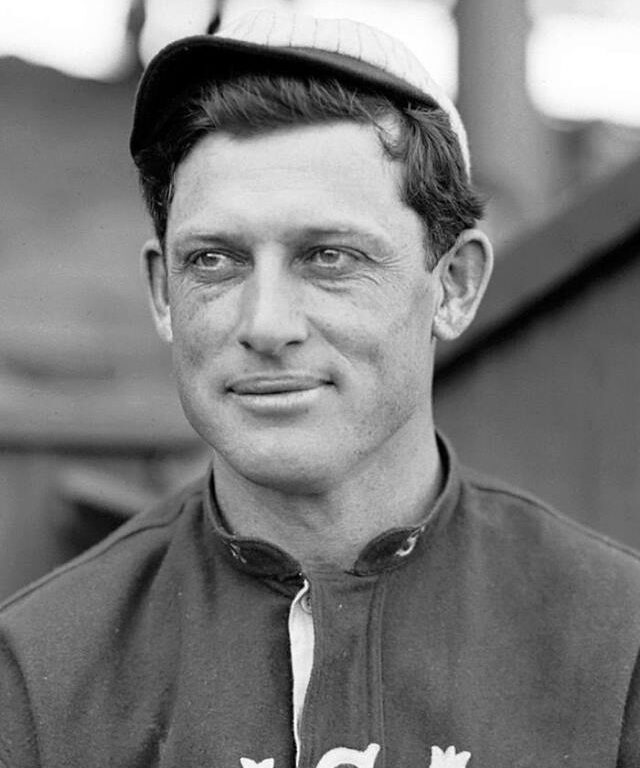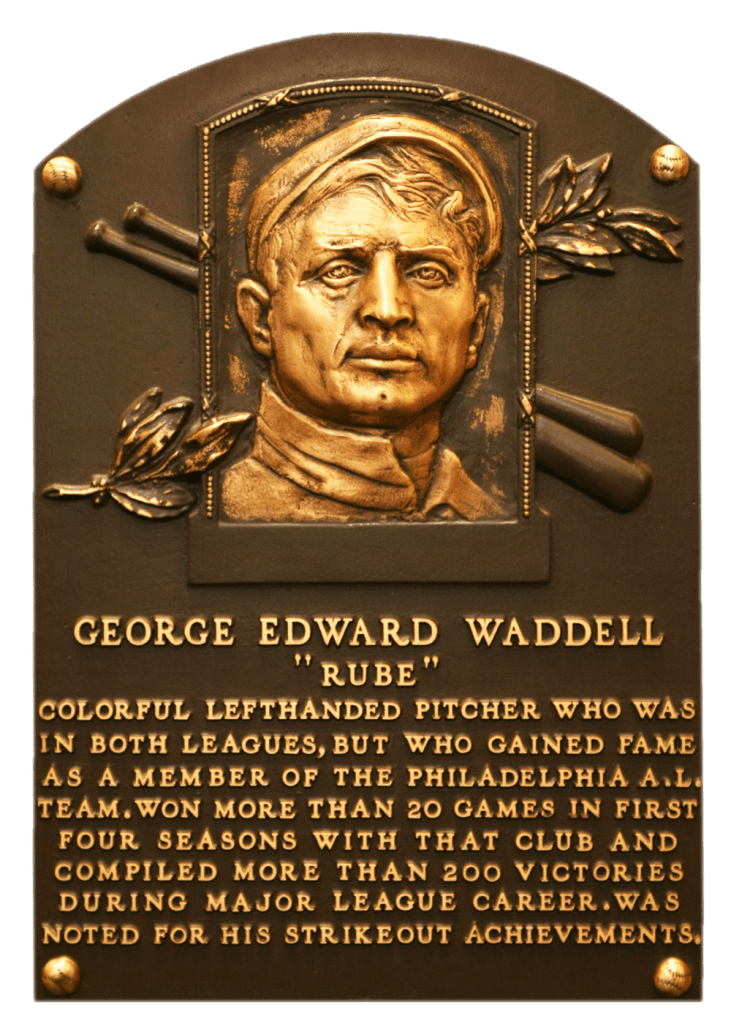
Rube Waddell is best remembered today by stories of his eccentric behavior. The bonus money he received for his first pro contract was both the cause and the means for a wild drinking binge, of which there were many.
Easily distracted, Waddell had a fascination with fire trucks, puppies, and shiny objects. The 13-year big league veteran sometimes left the playing field when his mind was disrupted. Waddell’s alcoholism only amplified these behaviors.
It’s a shame these tales overshadow a dominant pitching career that led him to Cooperstown.
Waddell broke into the big leagues just before the turn of the century. His first four seasons were in the NL with Louisville, Pittsburgh, and Chicago. The southpaw went 29-32 in the Senior Circuit but showed flashes of brilliance.
In 1900 he posted an 8-13 record but led the league in ERA, Fielding Independent Pitching (FIP), and walks plus hits/innings pitched (WHIP).
Waddell’s erratic behavior wore out his welcome with teammates and management. That temporarily subsided when he switched leagues and jumped to the Philadelphia Athletics in 1902.
Two weeks after he donned the A’s uniform Waddell struck out the side on nine pitches in the American League’s first immaculate inning. He pitched brilliantly during his entire tenure with the Athletics from 1902-1907.
During that time he tallied 131 wins with a miniscule 1.97 ERA. Four times he topped the 20-win plateau including a league-leading 27 in 1905.
Each season in Philadelphia he led the league in strikeouts. In 1903 he struck out 302 batters. The following season he upped the total to 349.
Waddell was an efficient run-preventer. All of his seasons with the Athletics featured ERAs lower than 2.50. He pushed that figure even lower in 1904 (1.62) and 1905 (1.48). Four times he led the AL in FIP.
With an electric fastball, devastating curveball, baffling screwball, and an unpredictably entertaining style, Waddell was the top drawing card of his day.
Waddell’s manager for those six dominant years was the legendary Connie Mack. According to the Hall of Fame’s website, the 66-year baseball man said of Waddell, “He had more stuff than any pitcher I ever saw,”
Soon after Waddell left the A’s his talent started to fade. Combined with his difficulty getting along with others, he simply wasn’t worth the trouble.
Waddell pitched his last big league game on August 1, 1910. He finished his career with a 193-143 record and a 2.16 ERA.
In 1912 Waddell was living in on the banks of the Mississippi River in Hickman, Kentucky. In winter, the river’s waters rose and threatened to flood the town. Waddell stood in the icy water stacking sandbags to help save the town.
Because of the episode he contracted pneumonia and weakened his immune system. Soon he also fell victim to tuberculosis. As his condition worsened, Mack and A’s co-owner Ben Shibe paid for his medical care.
A weathered and weakened Rube Waddell passed away on April 1, 1914 at age 37.
He was elected to the Hall of Fame in 1946.
Because of his early demise, Waddell’s signature remains quite scarce. It is not in the collection at this time.
